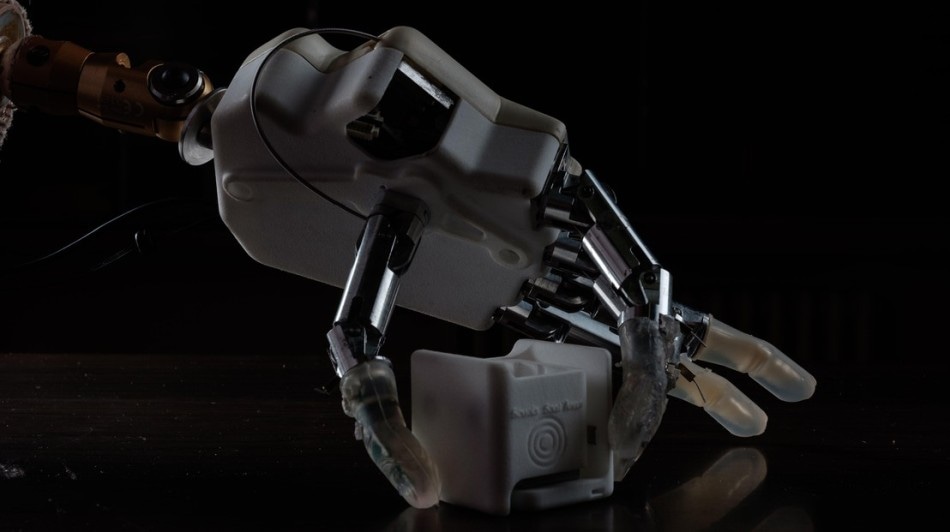Feb 21 2019
A futuristic bionic hand that enables amputees to regain their proprioception has been developed by scientists. The outcomes of the research, which have been reported in Science Robotics, are the result of robotics research over the past decade.
The next-generation bionic hand, produced by scientists from EPFL, the Sant’Anna School of Advanced Studies in Pisa, and the A. Gemelli University Polyclinic in Rome, allows amputees to recover a very slight, close-to-natural sense of touch. The researchers were able to reproduce the feeling of proprioception, which is the ability of the human brain to instantly and precisely sense the limbs’ position after and at the time of the movement even if it is dark or the eyes are closed.
 Image credit: EPFL
Image credit: EPFL
The new device enables patients to take a thing on a table and to determine the shape, consistency, size, and position of an item without even looking at it. The prosthesis has been successfully tested on many patients and functions by exciting the nerves in the stump of the amputee. The nerves can subsequently offer sensory feedback to the patients in real time—just about like they act in a natural hand.
The findings have been reported in the journal Science Robotics. They are the result of scientific research over the past decade led by Silvestro Micera, a professor of bioengineering at EPFL and the Sant’Anna School of Advanced Studies, and Paolo Maria Rossini, director of neuroscience at the A. Gemelli University Polyclinic in Rome.
Sensory Feedback
Existing myoelectric prostheses enable amputees to recover voluntary motor control of their artificial limb by making use of residual muscle function in the forearm. However, due to the lack of any sensory feedback, patients have to strongly depend on visual signs. This can restrict them from the sense of feeling the artificial limb as part of their body and render it more artificial to use.
Recently, several research groups have managed to offer perceptible feedback in amputees, resulting in enhanced function and prosthesis embodiment. However, this most recent research has taken things to the next level.
Our study shows that sensory substitution based on intraneural stimulation can deliver both position feedback and tactile feedback simultaneously and in real time. The brain has no problem combining this information, and patients can process both types in real time with excellent results.
Silvestro Micera, Professor, Department of Bioengineering, EPFL
The flow of external information is re-established by intraneural stimulation using electric pulses sent by electrodes inserted directly into the amputee’s stump. After that, the patients should take up training to steadily learn how to decipher those pulses into proprioceptive and tactile sensations.
This method allowed two amputees to recover high proprioceptive acuity, with results equivalent to those obtained in healthy subjects. Since the position information and tactile feedback were provided simultaneously, the two amputees could determine the size and shape of four objects with a high level of accuracy of 75.5%.
These results show that amputees can effectively process tactile and position information received simultaneously via intraneural stimulation.
Edoardo D’Anna, Lead Author and Researcher, EPFL
The European Commission, the Swiss National Centre of Competence in Research (NCCR Robotics), and the Bertarelli Foundation funded this study.